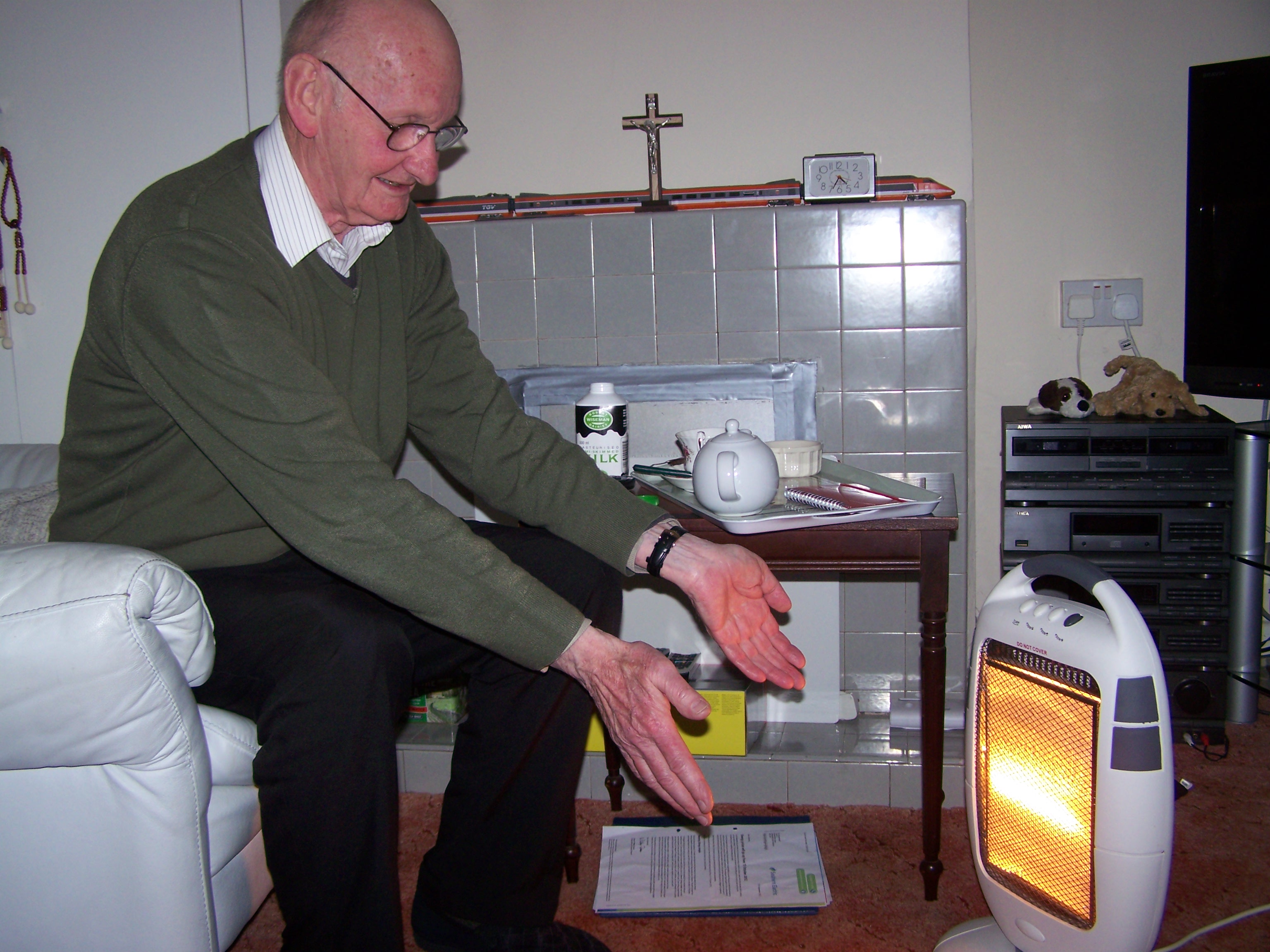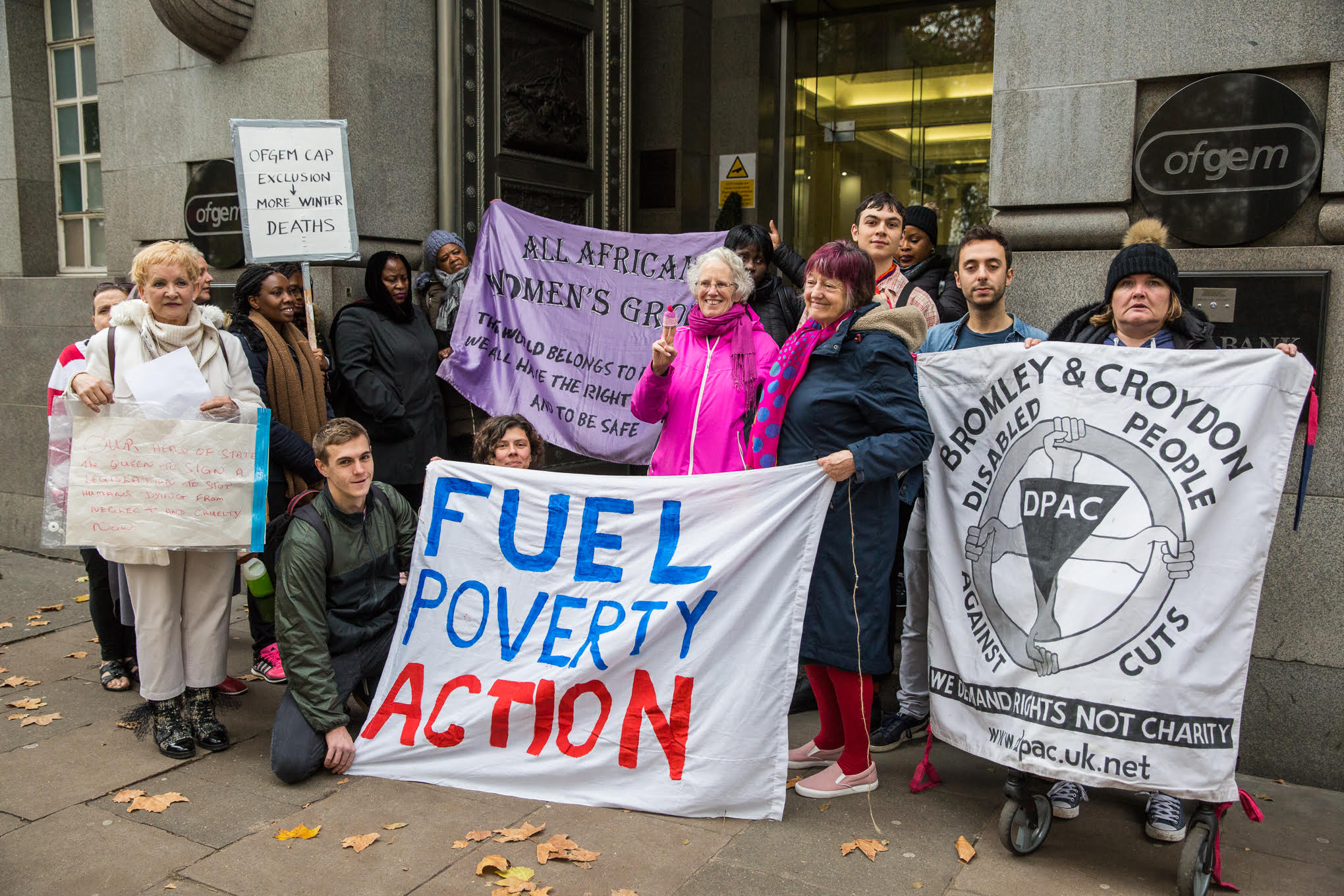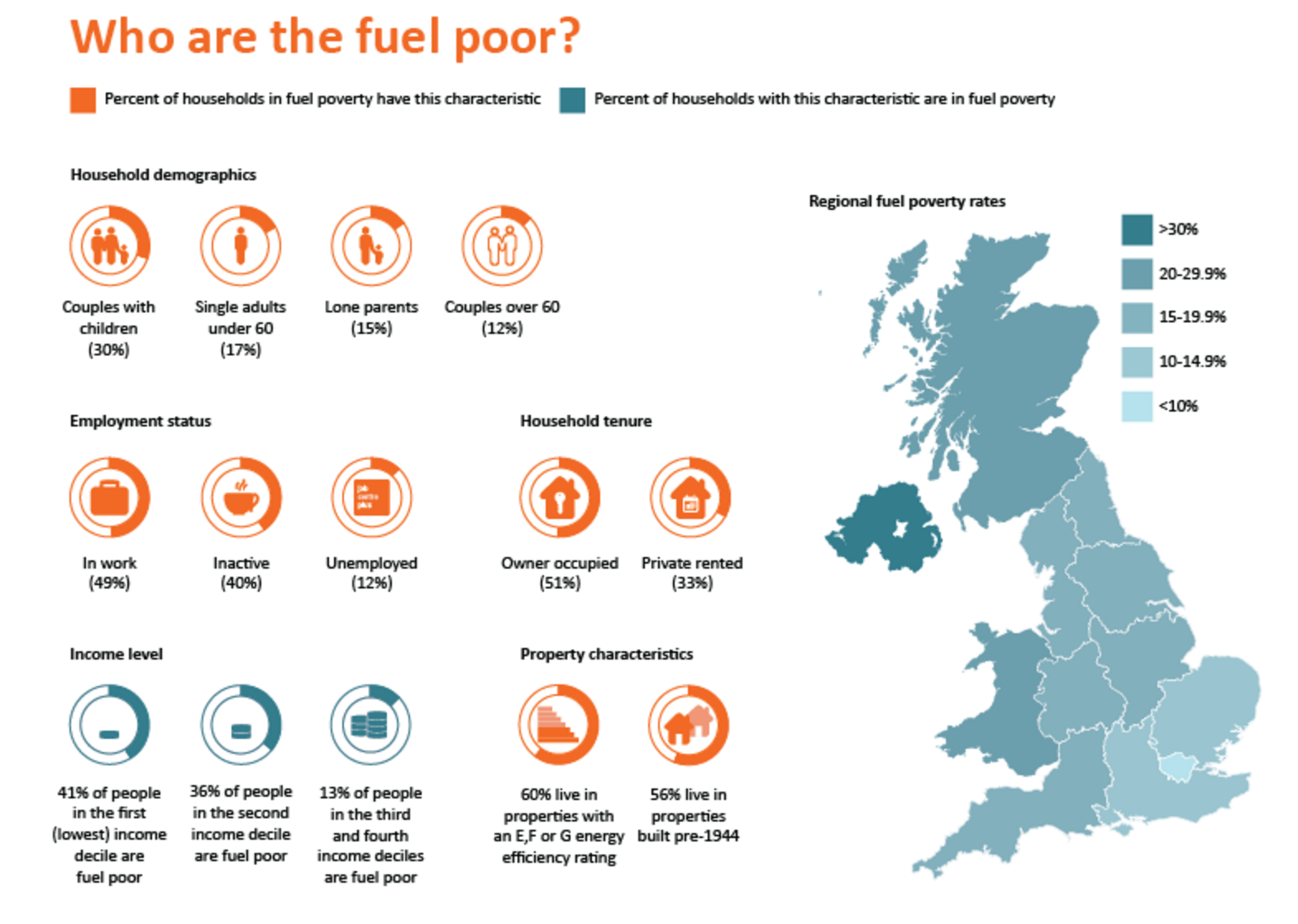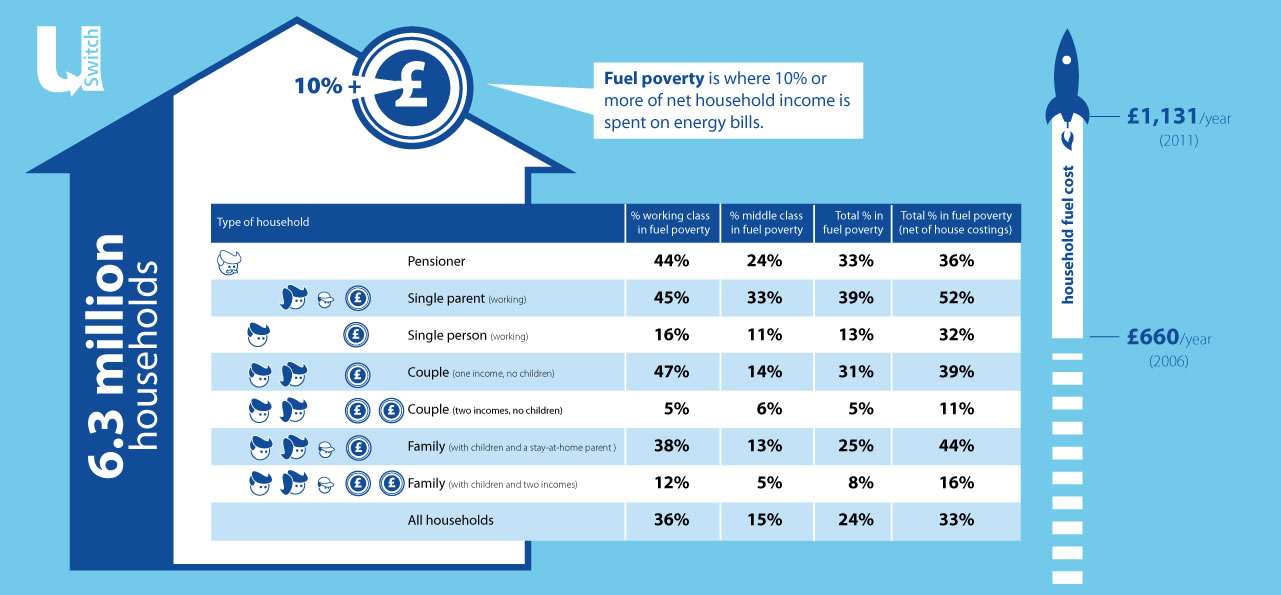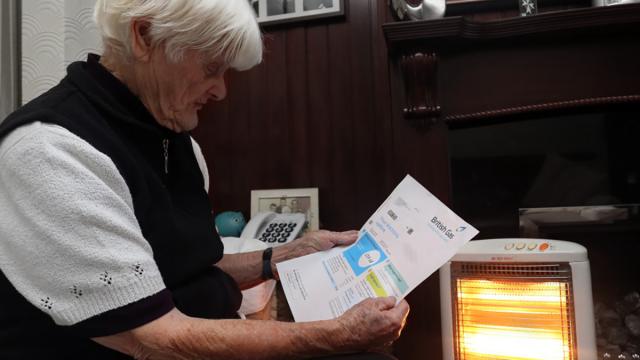
Britain recently experienced the coldest February week in five years as a frozen wind nicknamed “the beast from the east” came in from Russia pushing temperatures as low as -8°C in some areas. This is bad news for the homeless, of course, but also for those who can't afford proper heating in their homes. According to a report published to coincide with Fuel Poverty Awareness Day, fuel poverty now kills more people in the U.K. than breast cancer and prostate cancer.
In fact, researchers from think tank E3G and campaign group National Energy Action found that the U.K. has the sixth highest rate of preventable winter deaths in all 30 European countries. When also taking into account those who die during cold spells outside the winter months, the U.K. ranks second.
Fuel poverty has killed an average of 9,700 people each year over the last five years. High energy costs, lower incomes and homes that aren't energy efficient are all to blame, and campaigners believe the U.K. government is doing far too little to address the crisis.
“The U.K. has one of the worst records on cold homes-related deaths in Europe and it is not only a public health tragedy, it is a national embarrassment,” said E3G's Pedro Guertler, a co-author of the report. “This epidemic is entirely preventable and E3G and NEA are calling on the U.K. Government to reinstate public capital investment in home energy efficiency to fix the cold homes crisis. As well as ending needless suffering and premature deaths, it would also address a wide range of national infrastructure priorities.”
Guertler's co-author, Peter Smith, from the NEA, agrees. “As the U.K. experiences one of the harshest winters for several years, it is important to remember that this causes needless hardship, places health at risk and leads to premature death,” he said. Smith pointed out the mental as well as physical stress that fuel poverty can cause.
“Fuel poverty can sadly lead to total social isolation and even suicide. This preventable tragedy must end. The U.K. Government must support the strong case for the re-introduction of adequate public capital investment – a necessity if we are to make the U.K.’s homes warmer and safe for human habitation," he added.
Sophie, who goes by a different name, is one of those people affected by fuel poverty, both physically and mentally. Like the majority of people suffering from fuel poverty in Britain, she rents from a private landlord. Private landlords are already poorly regulated and may be further deregulated by the Residential Landlords Association, which has already fought to reduce a cap on landlord spending from £5,000 to £2,500.
“I’m one of the ‘working poor,’” Sophia told Occupy.com. “I’m on a low wage and have two children, so I claim Working Tax Credits and Child Tax Credits. Unfortunately this income just isn’t enough to cover everything, so I often go without so my children don’t suffer. I worry constantly that they aren’t having the childhood they deserve.”
Recent analysis from the NEA shows shocking numbers of children affected by fuel poverty, with around 430,000 children in England and Wales currently living in underheated homes. “It’s pretty obvious that the worst landlords will act only if they are required to,” says NEA Chief Executive Adam Scorer.
“Government has the chance to take many thousands of children out of the worst impacts of fuel poverty. If it does not, then it will be most vulnerable children in our communities who will continue to pay the price. Frankly, that is simply unacceptable.”
To avoid paying the high cost of energy, Sophie said she frequently turns her heating off while her children are out. Much like Elaine Morrall, who tragically died of cold at the end of last year while battling to keep her disability benefits, Elaine failed to attend three appointments for Employment Support Allowance because she had been in intensive care. Cuts to disability benefits and draconian attempts by the government to push more people off them have provoked a worrying upturn in deaths among the disabled due to fuel poverty.
The elderly are another group disproportionately affected by fuel poverty. With many struggling to survive on meagre state pensions, spiraling fuel costs mean that they're at risk of flu, respiratory and chest infections. Older people who have limited social circles may suffer in silence until it is too late. Charity Age U.K. estimates that one elderly person will die every seven seconds this winter for reasons related to fuel poverty.
The government cannot stop the cold snap, but it can take greater measures to ensure that everyone lives in a properly heated home. Unfortunately, the Tories' obsession with privatization means that public capital investment is at a low – even in cases of life and death. There are wider implications, too. Not only does fuel poverty kill, it also puts strain on a National Health Service that is already at breaking point and under threat of privatization. It is not the beast from the east we should fear, but the Leviathan at home.
3 WAYS TO SHOW YOUR SUPPORT
- Log in to post comments

